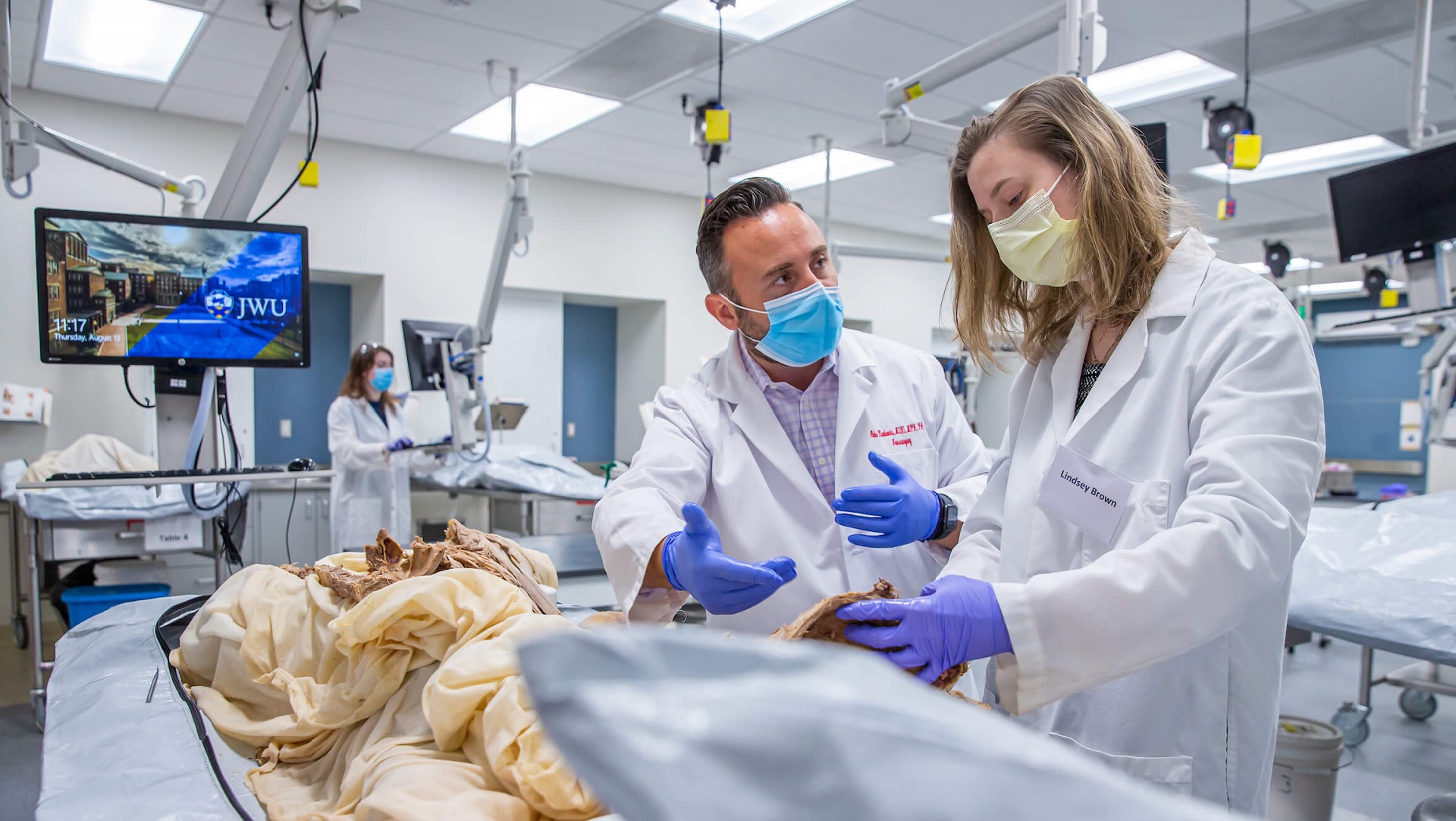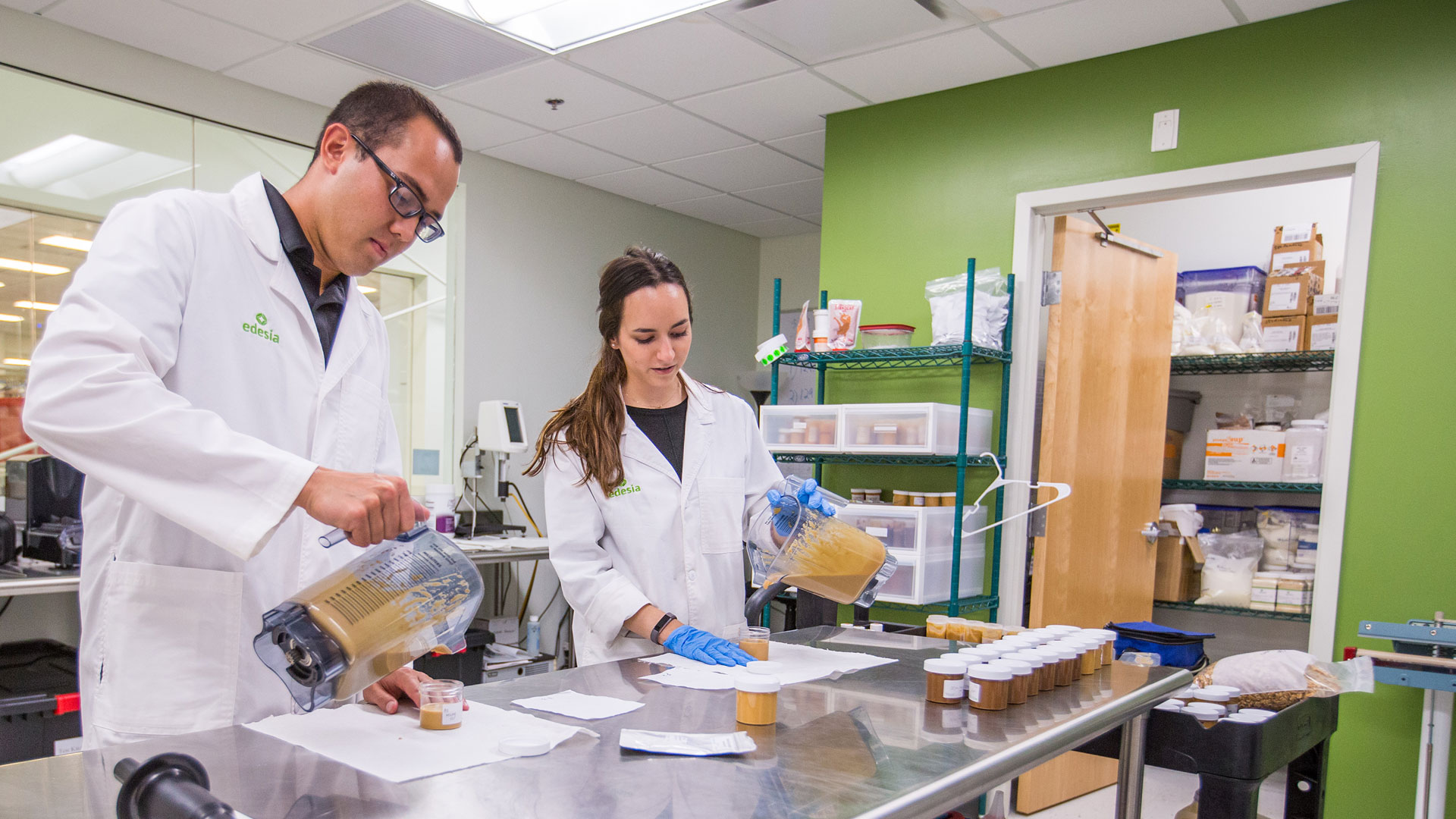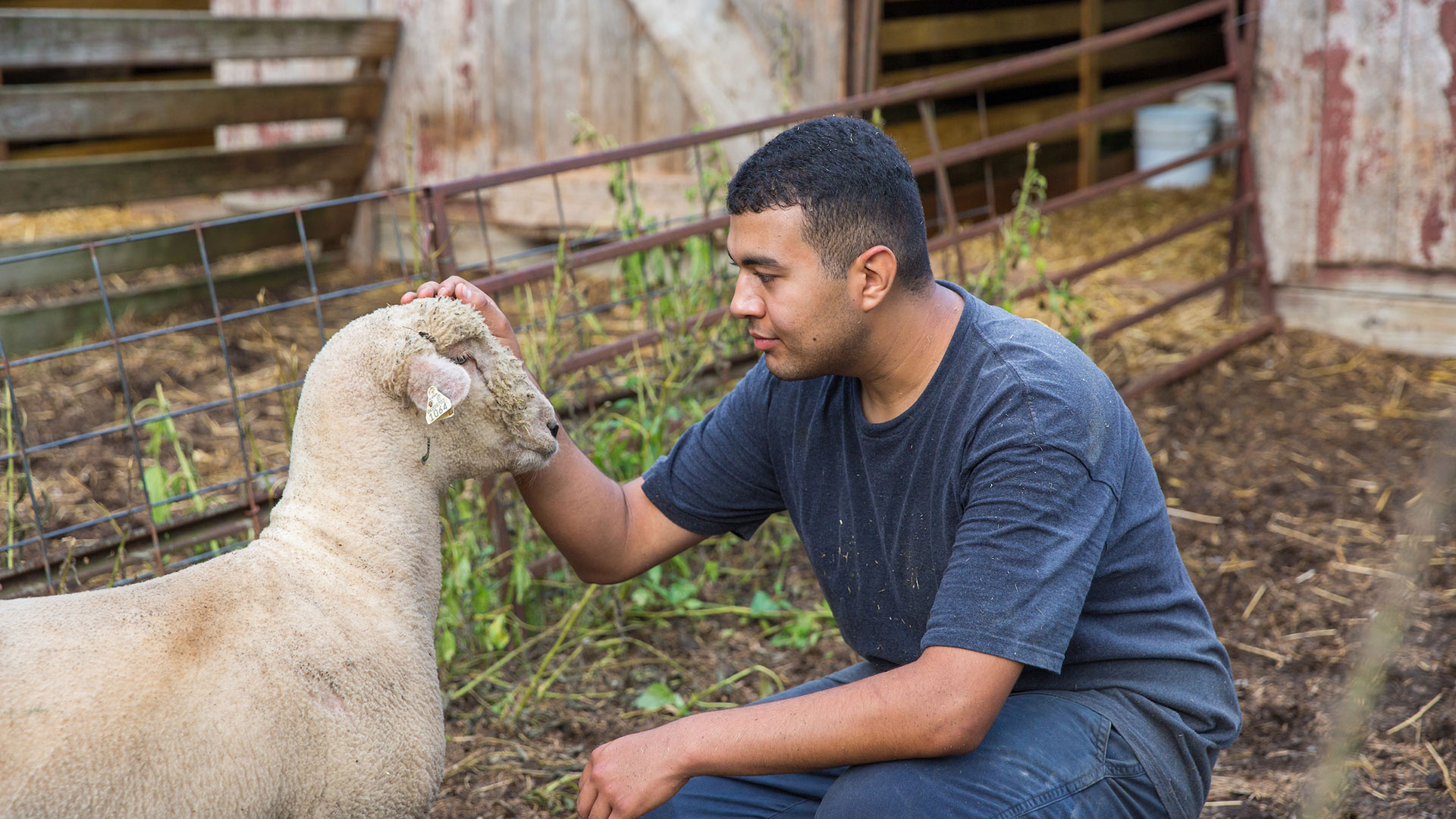Bachelor of Science
Biology
Launch Your Career in Science
Get grounded in the scientific essentials you need — cellular and organismal biology, ecology, biochemistry, chemistry and physics — to impact the future of scientific progress.
Dedicated faculty and JWU’s small class sizes will support your explorations in our biology, chemistry and physics labs, where you will get hands-on with animal dissection, studying organisms, investigating pathogen interactions, exploring real human cadavers and more. Specialization courses in botany & mycology, microbiology & biochemistry, genetics & epigenetics, coastal biology & environmental science, sustainability, histology & immunology, exercise science & epidemiology, analytical chemistry & organic chemistry and physiology will expand your knowledge in the areas that interest you.
In addition to developing your skills through interactive and problem-based learning in classes and labs, you could have opportunities to explore your interests through an undergraduate research project, an internship or more. Just a few examples of JWU Biology research/internship experiences have included students publishing their work in scholarly journals, presenting at regional and national conferences, performing gene editing experiments on plants using CRISPR-Cas9, developing a novel orthopedic device, shadowing medical providers and/or volunteering in clinics, performing ecological monitoring on local streams and even creating a children’s book about understanding diseases.
Many of our Biology majors go on to apply to JWU’s Master of Public Health (M.P.H.), Physician Assistant Studies (M.S.P.A.S.) or Occupational Therapy Doctorate (O.T.D.) degree programs; continue schooling to become medical doctors, dentists and veterinarians; or secure positions in academic, biopharmaceutical, and clinical settings. Our alumni have secured careers at institutions such as Amgen and Moderna and attended graduate programs at Tufts University, University of Alberta at Calgary, Worcester Polytechnic Institute, among many more.
IMPACT-STEM Scholarship
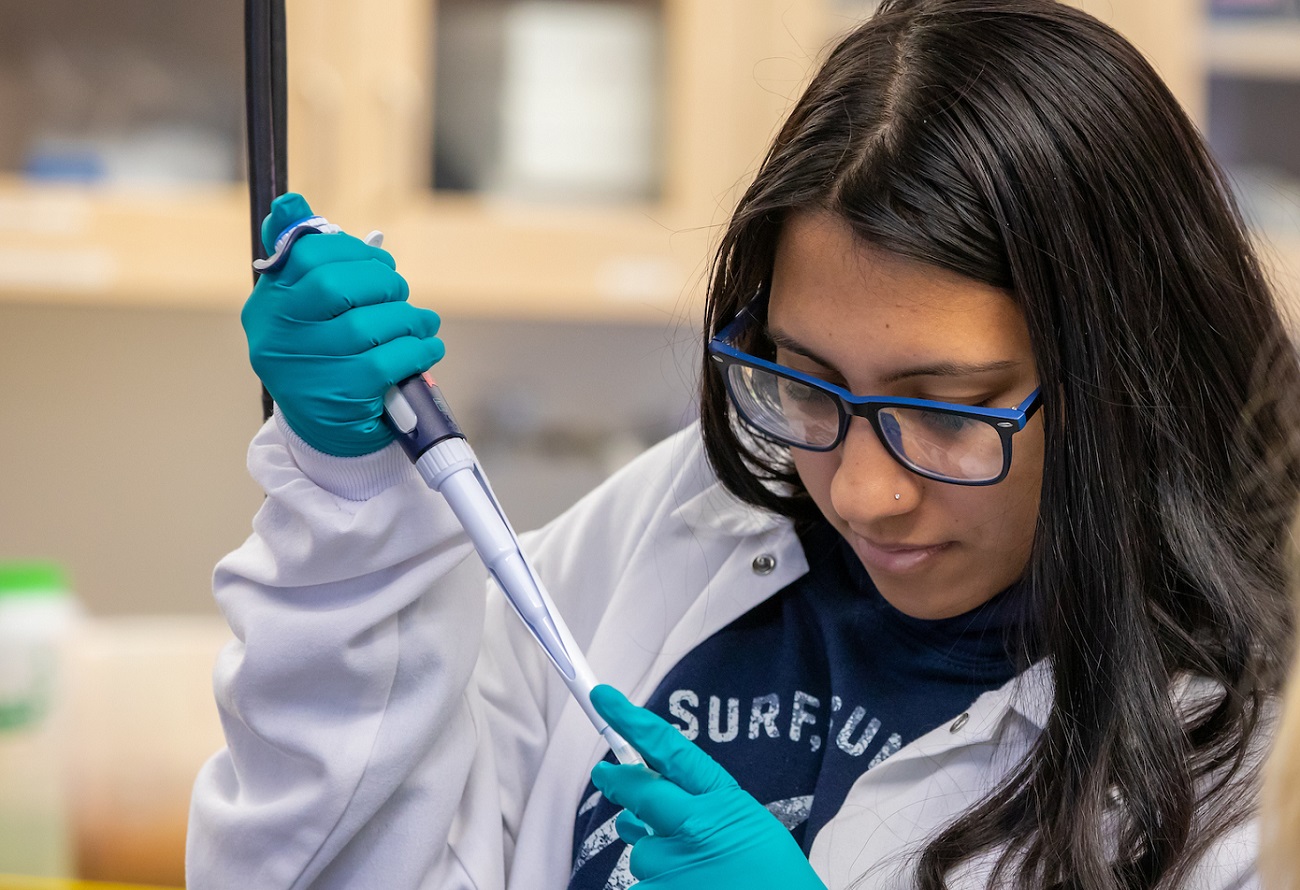 Established through a grant from the U.S. National Science Foundation’s Scholarships in Science, Technology, Engineering & Mathematics (S-STEM) program, JWU’s new IMPACT-STEM Scholars program is designed to support talented Biology B.S. majors who have financial need — by helping them stay on track to graduate and prepare for a career in the life sciences.
Established through a grant from the U.S. National Science Foundation’s Scholarships in Science, Technology, Engineering & Mathematics (S-STEM) program, JWU’s new IMPACT-STEM Scholars program is designed to support talented Biology B.S. majors who have financial need — by helping them stay on track to graduate and prepare for a career in the life sciences.
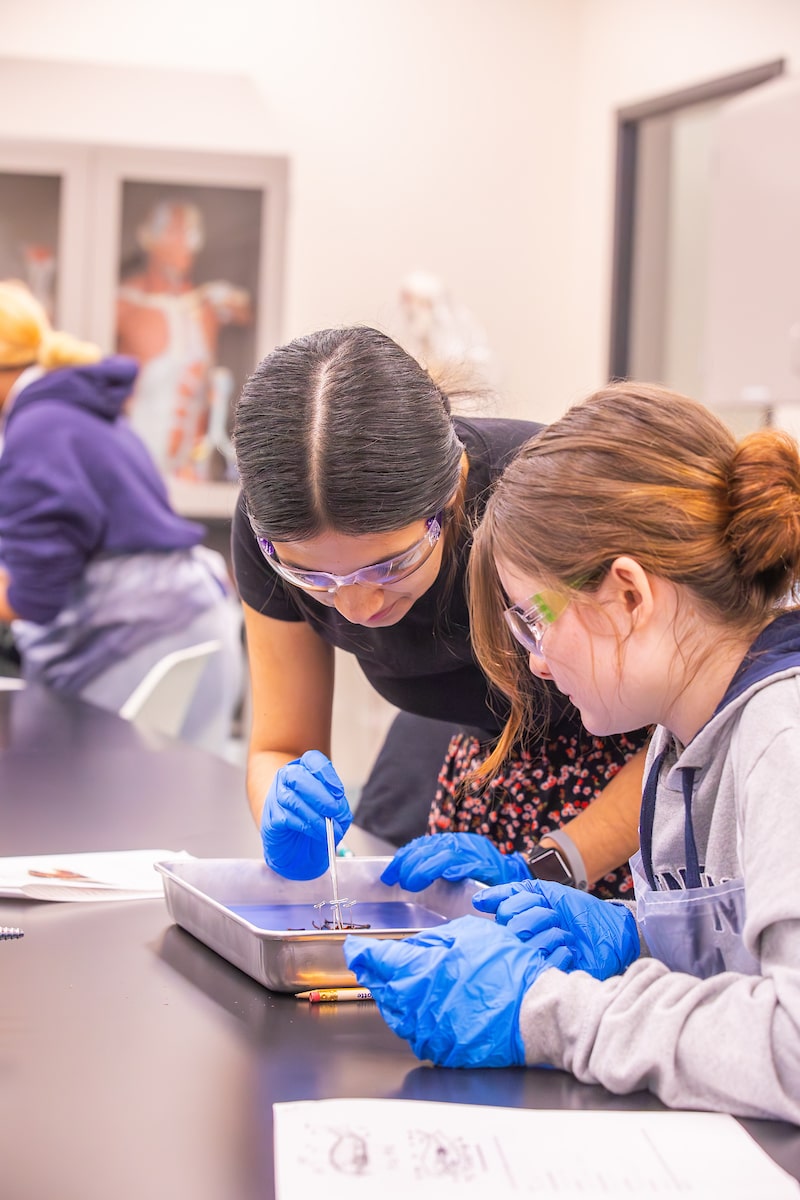
Get Your Master’s Faster
Students can earn a combined B.S. in Biology and Master of Public Health (M.P.H.) in as little as five years through JWU. Undergraduate students must fulfill all admissions requirements and complete a graduate program application for this option. If pharmacy is your calling, JWU has also partnered with the University of Saint Joseph on an accelerated graduate program, where qualified students can earn both a bachelor’s degree in Biology and a Doctor of Pharmacy (Pharm.D.) degree in six years.
Reach the Next Level in Biology
Getting hands-on is the best way to learn, and your Biology program provides just that. You will become familiar with appropriate and safe use of lab equipment while developing skills in light microscopy, dissection, pure culture, cell structure and growth, enrichment techniques, microbial identification and more. You will have opportunities to design experimental procedures, collect data, analyze results and discussion conclusions.
In this program, you’ll:
- Apply the fundamental biological concepts of evolution, structure and function, information exchange and storage, and transformation of energy and matter to explain biological systems from molecules to communities.
- Learn how to identify, evaluate and analyze scientific information and how to apply scientific methods and critical thinking to address scientific questions.
- Obtain skills in public speaking, scientific communication, bioinformatics and data analytics through your coursework.
- Gain exposure to ethical concerns pertaining to biological science and learn how to apply ethical practice.
- Choose a specialization in Biomedical Science, Environmental Studies or Plant Science to take a deeper dive in the area that interests you most.
Student Research in Biology
Biology Internship Opportunities
Biology major Jadyn Torres ’26 teamed up with JWU faculty members to address a gap in the literature on the subject of teens driving under the influence. She interpreted research on the influence of alcohol, cannabis and non-medical prescription drugs and examined the role of potential risk and protective factors. She was a published co-author in the study, which appeared in a scholarly journal, Traffic Injury Preventions, in early 2024. “I went into the topic very open-minded; I just wanted to help with the research,” Jadyn says. “I had a great time with it! I like interpreting experiences.”
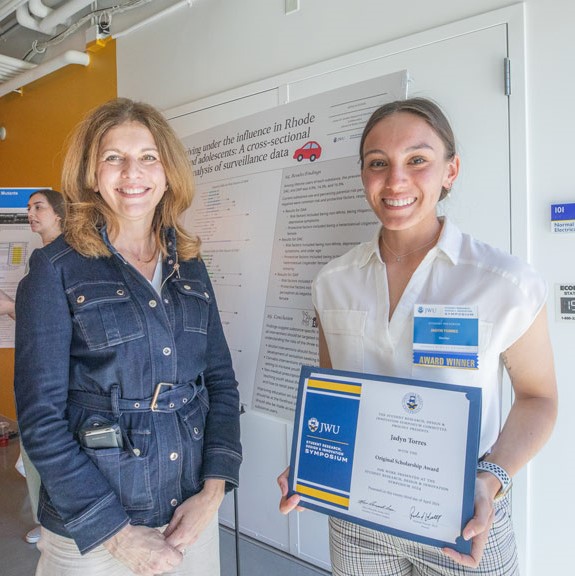
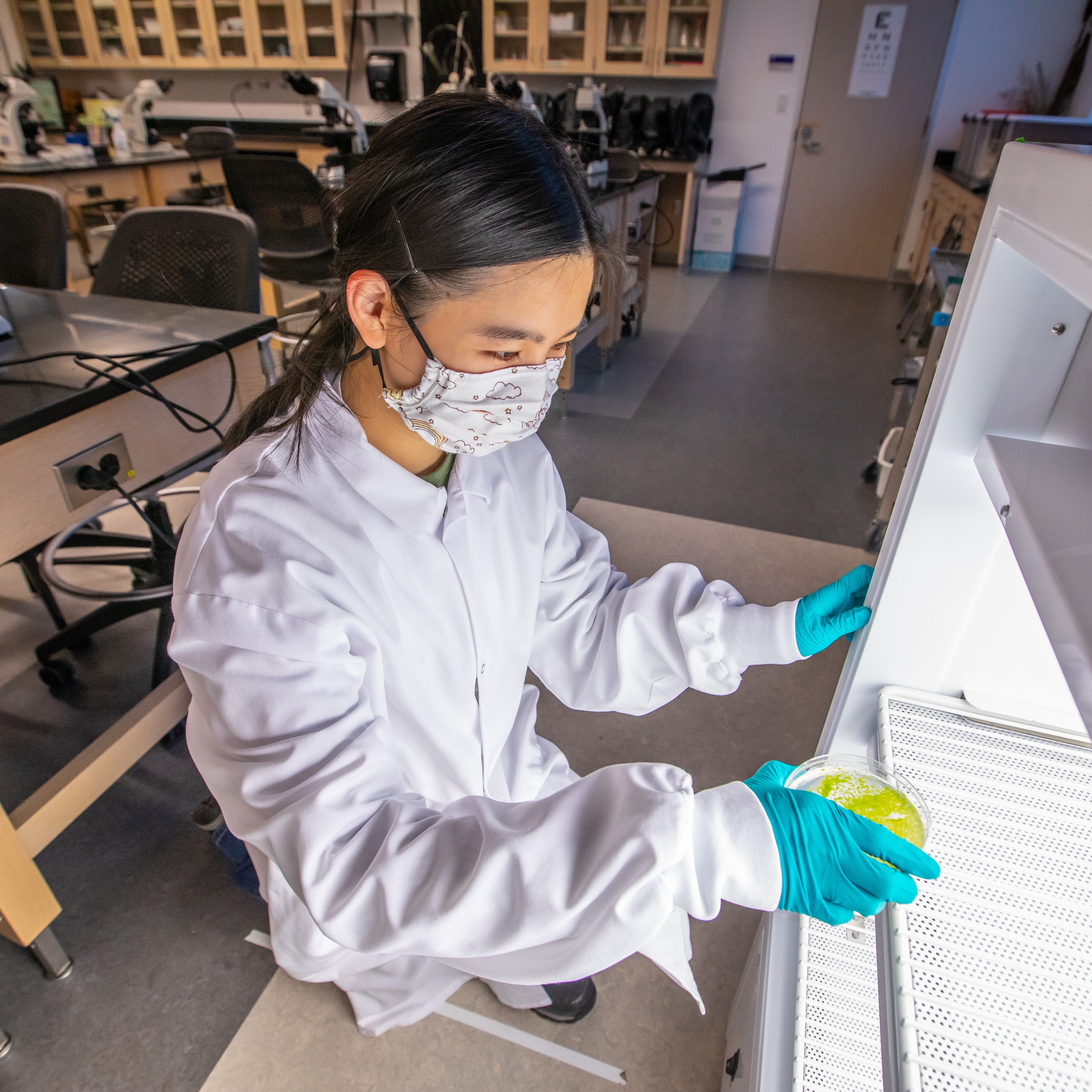
Developing Skills Through Research
Christine Wong ’23 was one of three Biology students who conducted laboratory research in their Undergraduate Laboratory and Field Research course, after having applied for and been chosen for the opportunity. Christine and her fellow students were charged with demonstrating that the bacterial plant-pathogen Pectobacterium carotovorum subsp. Carotovorum can infect and cause disease in the moss Physcomitrella patens. “Being able to be part of this research was a really good opportunity,” she says. “I wanted to try something new, and JWU’s small class size made that possible.”
Sample Courses
- Advanced Anatomy
- Fundamentals of Immunology
- Coastal Ecology & Lab
- General Microbiology & Lab
- Genetics
- The Business of Sustainability
In addition to classes, free elective credit can be applied to a number of options such as internships, minors or study abroad. You are encouraged to contact an advisor before scheduling free elective credits.
Career Possibilities
- Biotech and University Researcher
- Clinical Researcher
- Science Educator
- Forensic Investigator
- Environmental Technician
- Genetic Counselor
Some professions may require additional study, background checks, certifications, licenses, exams and/or experience as required qualifications for employment. Students are responsible for verifying that they can meet the employment requirements of potential employers.
STEM Skills are Cross-Marketable
According to 2018-2023 alumni data, 94% of our program alumni work in the field or are using their degrees toward graduate/professional programs. The same data reports JWU Biology’s clinical path preparation higher than national average for all continuing education:
- 100% acceptance rate to occupational therapy programs
- 100% acceptance rate to pharmacy programs
- 100% acceptance rate to optometry programs
- 100% acceptance rate to nursing programs
- 89% acceptance rate to veterinarian programs
- 80% acceptance rate to doctor of physical therapy programs
- 75% acceptance rate to physician assistant programs
- 50% acceptance rate to dental programs
- 40% acceptance rate to M.D./D.O. programs
Featured Faculty
Our professors and instructors are dedicated to the success of our students. Learn more about our expert faculty members.
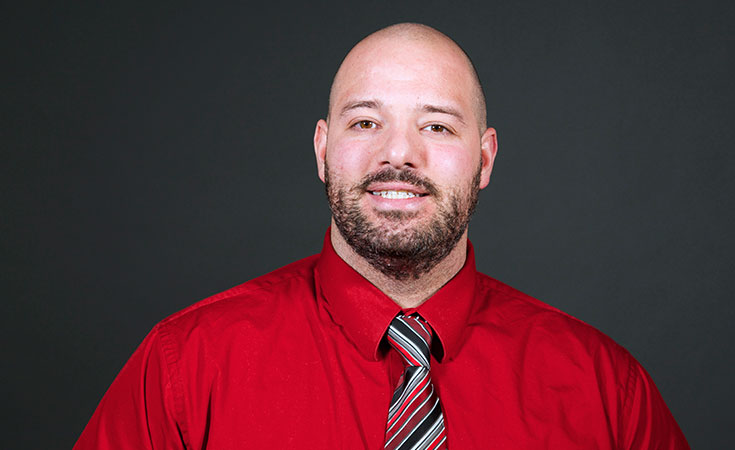
Professor
Dimos focuses on micro- and molecular biology. His research has ranged from the role the HS8A gene played in stress response in Dictyostelium discodeum to discovering the function of the Cellulose Synthase-Like D (CSLDs) gene family.
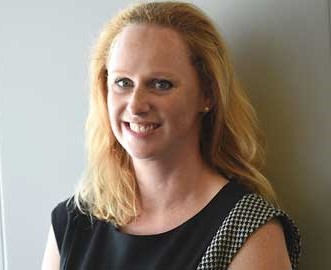
Professor
Rosler has served as an oncological research fellow at the University of Washington School of Medicine and the Seattle Institute for Biomedical and Clinical Research as well as working as a biological consultant for medical device companies.
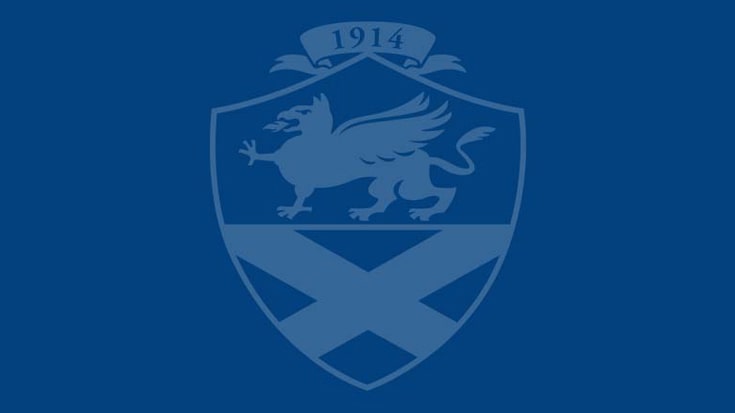
Assistant Professor
Aviles Rodriguez fervently believes that engaging students with the natural laboratories of the local ecosystems results in student-led application of the core themes of biology. His research applies ecological and evolutionary methods to evaluate amphibians and reptiles that are impacted by human activity and urbanization.
Related Programs
Visit JWU
Explore where you’ll live, learn, and enjoy all campus has to offer.
Schedule an In-Person Tour